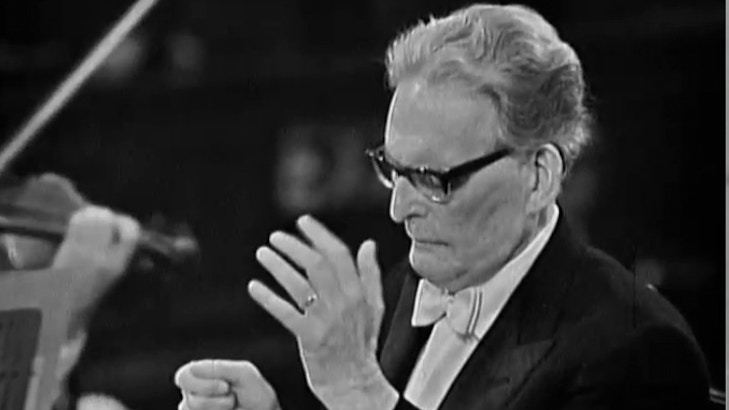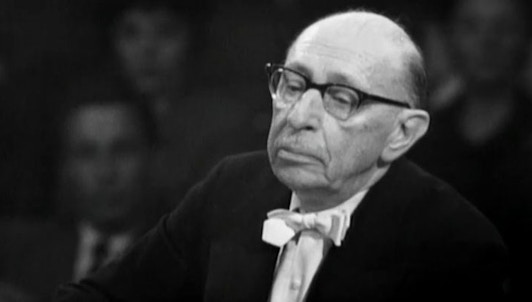Otto Klemperer is not only a huge conductor because of his height (two metres ten!) but also, and above all, because of the importance of his contribution to the history of music. An essential link between the 19th and 20th centuries (he was born in 1885 and died in 1973), in 1907 he met Gustav Mahler to whom he owed his debut at the German Opera in Prague.
From the Hamburg Opera where he made his German debut to his exile in 1933 in the United States, he constantly put himself at the service of the music of his period by performing many premieres: the The Dead City by Korngold, Œdipus Rex by Stravinsky, Erwartung by Schoenberg, From the House of the Dead by Janacek…
In the United States, he took the direction of the Los Angeles Philharmonic Orchestra which, for a period, he conducted at the same time as the Pittsburgh Philharmonic. In 1939, a very serious health problem left him paralysed after an operation. From then on, he only conducted seated. In 1955, the producer Walter Legge appointed him for life as the conductor of the Philharmonia Orchestra, a formation Legge founded in London just after the war. But ten years later, Legge decided to dissolve the Philharmonia.
The musicians, who refused this decision, asked Klemperer, this authoritarian man with a sharp tongue but whom they had learnt to like, to come and conduct Beethoven's Ninth Symphony to collect the funds needed to resuscitate a New Philharmonia Orchestra. Klemperer agreed to let this concert at the Albert Hall be filmed by the BBC.
That evening in 1964, the German conductor, in brilliant form, conducted a Ninth Symphony impressive by its grandeur and power with a cast of top soloists.

